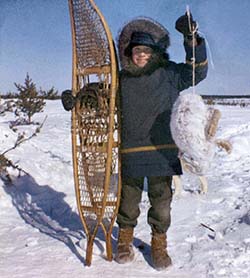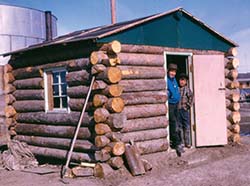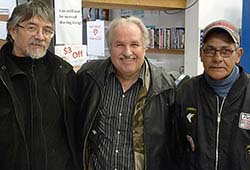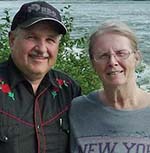by Kit Elford
What is a “Third Culture Kid”? TCKs are individuals who are raised in a culture other than their parents. The “third culture” is the mixed identity that the child takes on, influenced both by their parents’ culture and by the setting where they are raised.
It can be confusing for the TCK. For a missionary kid (MK), he or she may not feel accepted in the Native community. And the MK may also struggle to relate to their parents’ culture, where they may be labeled as “different.”
I can understand MKs who struggle with being a TCK—because I am both. Some people from my parents’ culture may think, “Well, that’s just Kit,” not realizing that there was a different culture involved.
However, the TCK label doesn’t fit all MKs. In NCEM we have missionaries who serve on Reserves, but are not allowed to live on Reserve. So their children grow up in a nearby non-Native community, spending most of their time with people from their own culture.
In my own family, my older brother spent more of his adolescent years in southern “white” culture. My younger sister was exposed to northern culture, but then our family moved to where she was mostly in my parents’ culture while still young (though near a First Nations community). I was the only one in my family raised more in a culture not our own.
CULTURE AND COMMUNICATION
For MKs who grow up primarily in the North, the struggle may show up when their family goes on furlough to visit “home” churches and communities. There are things expected of the MKs and when they don’t react in the “correct” way (according to hometown standards), they are sometimes thought of as rebellious, rude, or different.
I can remember not understanding some things when visiting my parents’ home area. Apparently, the way I responded was not in keeping with my parents’ culture. My questions: “Why are you doing that?” must have sounded like accusations. I was just being inquisitive.
When I left home at age 17 I found myself immersed in American culture. By then I was realizing that a person’s “growing up” culture is usually their first response, but these have to be set aside to fit into new surroundings.
Even to this day, misunderstandings show up in communication with my wife, Debbie. The Native culture I grew up in was very direct and to the point. If there is a question, it is hit dead on and dealt with. Of course, this varies from place to place, as some Indigenous groups are much less direct in their conversations. It was a Christian Native man who explained these differences in communication to me.
A RETURN VISIT
Last year, after 50 years of being away from the northern community where I grew up, I was able to return for a visit. It didn’t take long for things to feel familiar again, even some of the language. I would wake up in the morning with words from my childhood in my head, though I didn’t remember what they meant. There were some words I didn’t even know that I knew.
In a neighboring settlement on that same trip, someone asked me where I was from. I told her, “Billings, Montana.” Her response was, “No, you’re not.” I said, “Where do you think I come from?” She replied, “Brochet.” She was right – that is where I had grown up.
In the city of Billings, where we serve in the NCEM US Office, I often find myself looking for Native people to interact with, as that is when I feel most comfortable. Even the food I enjoy most is the kind I grew up with. (I still would much rather have bannock, dried meat – not southern “jerky” – fish, or fresh meat.) On a spiritual level, I find that Native people are more spiritually aware. They are easier to talk to about spiritual things.
MK CHALLENGE & ADVANTAGE
I trust this article helps you understand and respond to people with a different cultural background from your own, especially Third Culture Kids. I remember a young MK coming up to me very confused. He asked me where he fit in. He said, “My dad is one culture; my mom is another; and I am growing up in a different culture altogether.”
I also have a special concern for MKs who are seeking to return to the mission field as missionaries, as they face an extra challenge in raising prayer and financial support. They most likely do not have a home church. These MKs know the culture and customs of the people they are going to, and can be very effective workers. They need to know that there are God’s people interested in standing with them.






